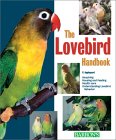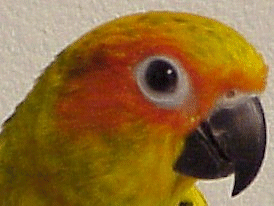Should I Own More than One Bird?
Many people know the feeling: you have a wonderful parrot that has become a beloved member of the household. You enjoy visiting pet stores and seeing what birds they have. You coo at the precious baby parrots with their downy backs. You laugh at the just-weaned Amazon parrot who is already saying, “Helloooo!” You start to think, “Another bird would be great!”
Often, this leads to an impulse buy. You trot home with the new bird, assuming one more bird won’t add that much work to your life. But is it as simple as that? There are some issues that should be taken into consideration whenever you think about increasing the number of your flock.
Health Issues
New birds always increase the risk of bacterial and viral diseases. You need to consider at least a 6-week quarantine, which can be very stressful for the new bird. It is a good idea to bring the new bird to an avian vet to test for the more serious infectious diseases. There is nothing more devastating than finding out you brought a new bird into the home and that bird infected the rest of your flock.
Compatibility
Face it. Some birds are extremely jealous companions. My Senegal parrot Max despises all other feathered creatures and would be the instrument of their death if given half a chance. He will go after parrots twice his size without a moment’s hesitation. This means I have to take special precautions to avoid any possible contact between Max and other birds.
If you have seen those stores with big manzanita trees filled with various species seemingly so compatible with each other, remember, there is no guarantee your birds will get along to this degree. Compatibility can change as birds age and reach sexual maturity. It is extremely risky to put mixed species in a single cage or flight. This is true of many birds, not just parrots. For example, some species of finch are quite aggressive toward other species. Those little budgerigars can be very aggressive toward smaller birds, such as society finches.
Time and Attention
As most current bird owners know, many species require quite a bit of care and attention. Water bowls get dirty quickly, seed is tossed about the floor, that fresh cooked broccoli is now sliding down your wall where your darling Umbrella cockatoo just flung it.
Double that mess in your mind.
Most parrots need focused attention every day. If the birds like each other, this might be relatively easy. But if they go after each other like wild cats, you will have to set aside specific time periods to handle each one. For example, my amazon Inca tends to like her attention in the morning first thing. My Senegal would like attention all day long, but he is happy with a few minutes of handling and knows he gets a good hour or so of concentrated attention every evening when we watch TV together. Because I work at home, I have a lot more flexibility in terms of time with my birds.
“Collecting” and Extreme Cases
I remember hearing the saying, “Birds are like potato chips…” and I do think this can be true for some people. A friend of mine was recently house shopping. She viewed a home where birds were kept as pets. She said it was shocking. There was a special room for the birds. The place was filthy, with poops and food everywhere. Damage to wood was evident throughout the house. She couldn’t imagine how anyone would be willing to live that way. It was clearly a situation that had gotten out of control. Unfortunately, this kind of “collecting” has become an increasing problem recently and is even considered a psychiatric condition by some specialists. Of course this is an extreme example, but I have seen it in varying degrees. The first sign of trouble is when an individual spends the rent money on a new bird. I have even heard this syndrome called “Bird Poor”–meaning they spend their money on birds first and then deal with other financial responsibilities later. This also means there is rarely much money available for veterinary bills, so these homes will sometimes have a number of sick birds in need or care.
In Conclusion
When deciding whether or not to add another bird to your household, consider your schedule and lifestyle. Make sure you can budget time for all your birds before adding any more creatures to the flock. Avoid impulse buys at all costs even if the bird seems “perfect.” You will be much happier if you prepare in advance for the added responsibility of another feathered friend.










